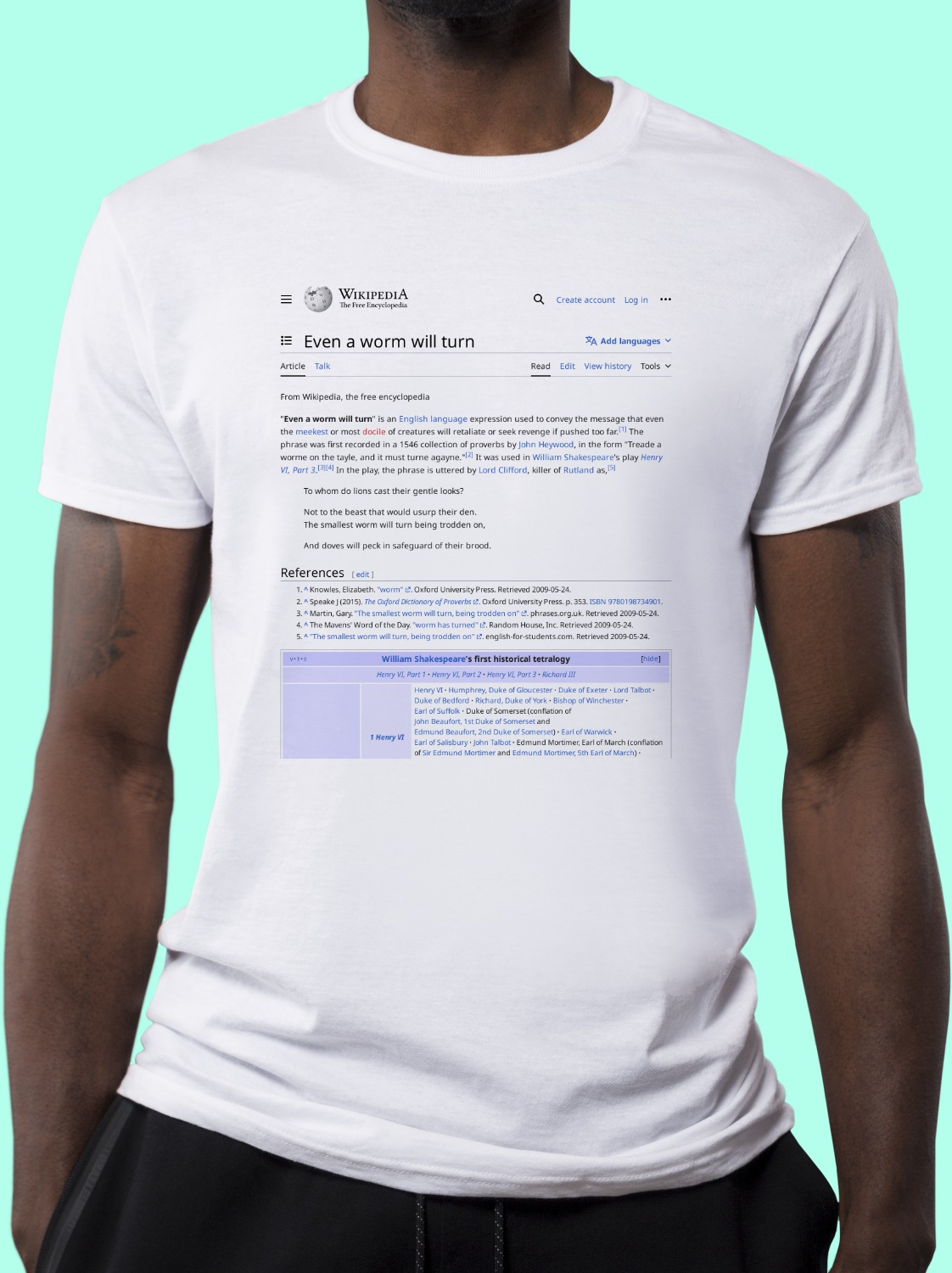
Even a worm will turn Shirt
A classic cotton tee emblazoned with the Wikipedia article on Even a worm will turn ↗.
cotton tee emblazoned with the Wikipedia article on Even a worm will turn ↗.- Preshrunk jersey knit
- Seamless double-needle 2.2 cm collar
- Taped neck and shoulders
- Tear away label
- Double-needle sleeve and bottom hems
- Quarter-turned to eliminate centre crease
"Even a worm will turn" is an English language expression used to convey the message that even the meekest or most docile of creatures will retaliate or seek revenge if pushed too far. The phrase was first recorded in a 1546 collection of proverbs by John Heywood, in the form "Treade a worme on the tayle, and it must turne agayne." At the time “agayne” also meant “against” or “oppose”. It was used in William Shakespeare's play Henry VI, Part 3 (Act 2, Scene 2). In the play, the phrase is uttered by Lord Clifford, killer of Rutland as:
It's been proposed that this passage from Henry VI was suggested by one in a history by Edward Halle. In that book the Earl of Warwick makes a speech that includes the passage:
In 1641, the following passage in a letter from Edmund Verney to his son Ralph Verney further confirms the proverb's meaning that small affronts can lead to rebellion.
The proverb is also found in other countries.
About Wikishirt
Wikishirt is a retail experiment that lets you buy a shirt with any Wikipedia Article printed on it. There are over 5 million Wikipedia articles, so we have over 5 million shirts.Check out our homepage for random featured shirts and more!